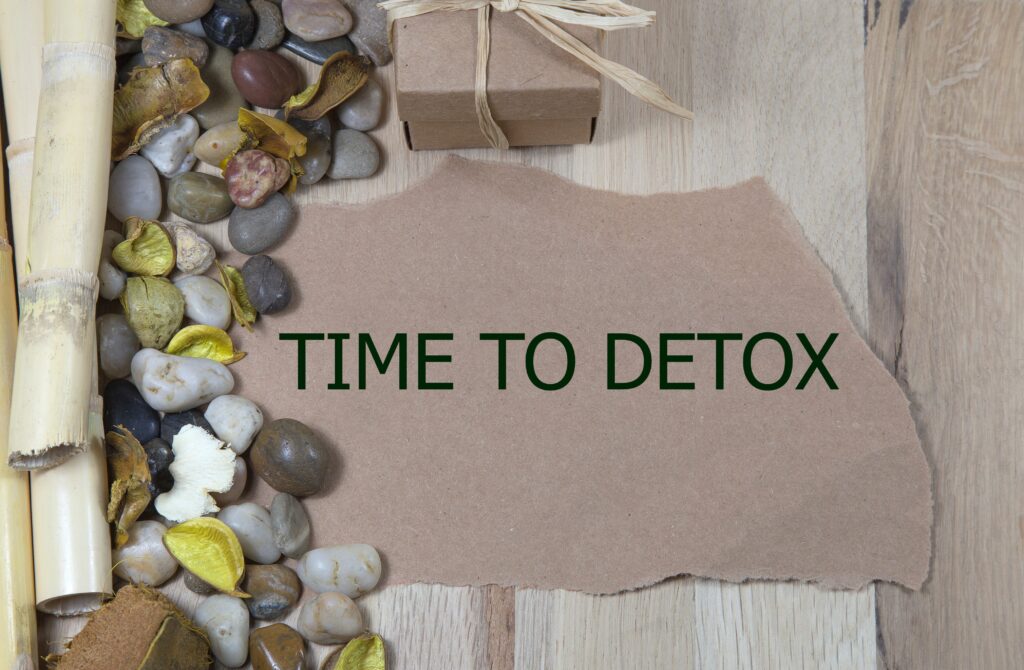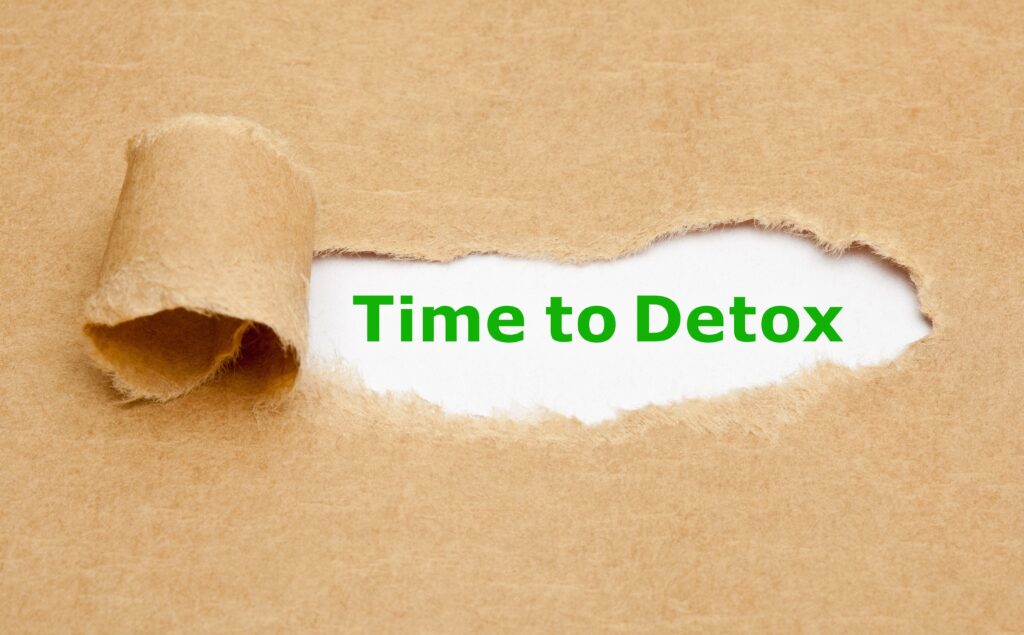Taking the first step towards getting better, drug detox is the process of removing drugs and other substances from your body to help you physically and psychologically come to terms with de-addiction. It is often considered the prequel to a full-fledged rehab programme.
Depending upon the frequency of usage, types of drugs involved, and the body’s dependence on the substances, it can take from a few days to a few weeks to get through detox. While it sounds simple, detox is not something to be taken lightly. Stopping cold turkey can have serious adverse effects on your body and mind. With withdrawal symptoms like nausea, vomiting, muscle pain, fever, insomnia, and anxiety being common symptoms, it can also lead to seizures, hallucinations, and depression. Hence, consulting a professional is the best way to address your issues.
There are two types of detox treatments – natural and medicated. As the name suggests, natural treatment leans towards a tapering off approach where the patient is exposed to lesser and lesser quantities every day until they can safely let it go. Medicated detox is about using agents to stabilize the symptoms that occur during withdrawal.
Listed below are some of the medicines used during drug detox.
Methadone
A Schedule II controlled substance, Methadone acts as an opioid antagonist. It attaches the receptors the same way an opioid would but at a much slower rate. Taking the place of the disrupting drugs, it allows the patients to easily let go of the symptoms. Due to its pace, the drug causes no euphoric effects whatsoever. It takes control of the cravings and reduces them considerably. Most effective towards addictions like heroin and prescription painkillers, Methadone has the tendency to be in the system for up to 55 hours.
Buprenorphine
Much similar to methadone, Buprenorphine acts as a replacement drug against opioids. It takes up the place in opioid receptors and reduces any cravings for different substances. A gradual onset that lasts for up to 24 hours assures no euphoria of any kind. Its paced out effect also makes weaning off the medication more comfortable. Given that it is only half the opioid agonist in comparison to methadone, Buprenorphine is also given as a prescription to take home in some cases.
Naltrexone
Naltrexone nullifies any effects that occur due to opioid intake. Stopping the euphoria that comes from substance abuse essentially diminishes the cravings for consumption. It blocks the brain receptors from bringing in the addictive feelings. A person on Naltrexone shall not feel any rush if they still choose to indulge in drug intake. Prescribed by the Substance Abuse and Mental Health Services Administration, a person should not have any drugs in their body when the medicine is taken, or the withdrawal symptoms could escalate. Ultra-rapid detoxification programmes usually recommend Naltrexone as an injection or nasal spray.
Naloxone
Branded and sold as Narcan, Naloxone not only blocks the opioid receptors but also reverses the effects of a narcotic reaction of full opioid agonist drugs. Used to inverse the effects of an overdose, it binds your brain cells much harder than other opioids, taking effective control of the receptors. The medication is usually used in combination with Buprenorphine, giving life to another medicine called Suboxone. Suboxone is administered as a film that’s kept under the tongue to reduce the potency of Naloxone. Narcan, due to its immediate effects, is seldom taken alone as it can accelerate withdrawal symptoms.
Modafinil
Modafinil, in simple terms, keeps you alert. It manages erratic sleep patterns and helps you function on a daily basis. Used to treat stimulant withdrawal, it battles against symptoms that occur with the process. It was primarily approved as a treatment for narcolepsy, but now, it has also been said to work against cocaine. The medication reduces the responses to the drug and helps diminish the chances of a relapse. It works best in conjunction with behavioural therapy for apt effectiveness.
Medication for Co-Occurring Disorders
Addiction, almost always, affects mental health in a very severe manner. Anxiety, depression, mood swings, and panic attacks are some of the symptoms that occur immediately and sometimes persist long after completing the detoxification process. Clonidine, which is effective for blood pressure patients, also doubles up as an anxiety medicine. Similarly, Benzodiazepines, Loperamide, and Acetaminophen are used for anxiety, diarrhoea, and inflammatory pain, respectively. Valium is another medication used to help with anxiety and everything that comes along with the issue. The introduction of these pharma drugs ensures that your nervous system eases into accepting the lack of addictive stimulants and regains its functionality at a controlled pace.
Ending Notes
The central part to note here is that there is no cure for addiction, even with complete medication. No medicine in the world can take addiction off the palm of your hands on its own. Medicated detox only helps you manage the withdrawal symptoms and control any cravings. In the end, it all boils down to how you choose to go ahead from there. It is advisable to enrol for traditional therapy sessions and complete rehab post the detox phase.
Detox helps with better your physical demeanour; the real healing begins when you start working on the underlying issues and patterns that led to the addiction in the first place. A lot of patients seem to cut-off from the journey because of how clean your mind and body can feel due to detox but, in most cases, that can lead to a relapse. If confused, you can always choose a plan that comprehensively takes you from detox to complete rehabilitation treatment.
Most importantly, you should know that the medications talked about here are always to be taken under intensive medical care and only on prescription. Some of the medicines can cause addictions of their own and lead to further abuse. To avoid this, consult a trained professional to initiate the process of detox.
If you or someone you know needs help with addiction or is ready for detox, contact 1-602-346-9143 or email [email protected] to get the help you need.












